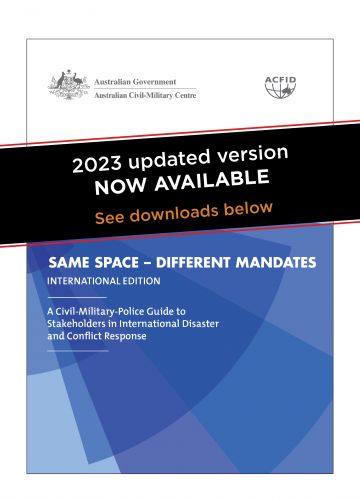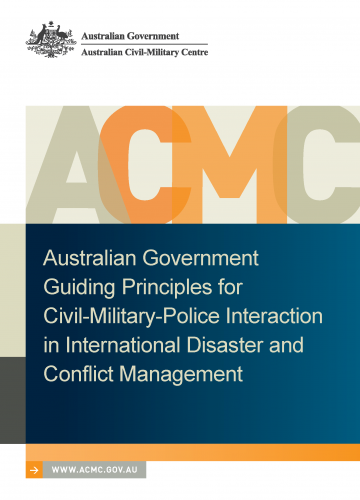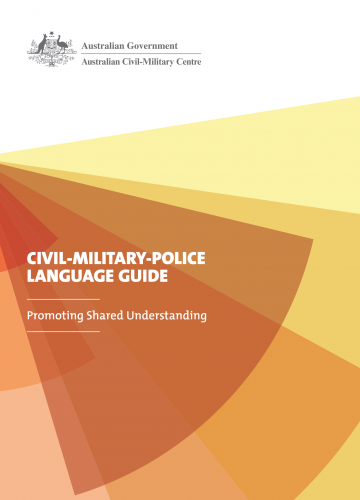In response to overseas natural or manmade disasters and complex emergencies, defence forces, police, government agencies and the aid community often find themselves operating in the same physical space as one another. Unfortunately, a lack of understanding and confusion over stakeholder roles, responsibilities, cultures and terminologies can impede communication and coherency in program implementation, leading to reduced effectiveness in meeting the needs of the host population. Issues such as humanitarian space shrinking due to restrictions on humanitarian access; perceptions regarding subordination of humanitarian principles; the tensions that arise between political, humanitarian and military objectives within integrated multiagency stabilisation efforts; and the increase in the number of organisations and individuals operating in these environments all serve to add a degree of confusion and potential for discord. However, experience has shown that improved mutual understanding of the roles, mandates, principles, cultures and objectives of the various civil-military stakeholders enhances constructive engagement, dialogue and communication prior to and during deployments. With this dialogue and communication comes greater opportunity to achieve maximum benefits for people and nations affected by natural disasters and conflict.
The Australian Civil-Military Centre and the Australian Council for International Development have developed this document, Same Space– Different Mandates: International Edition, to address an international audience. Building and expanding upon Same Space–Different Mandates, which focused on Australian stakeholders, this edition aims to improve the collective understanding of civil-military-police stakeholders responding to international natural disasters and complex emergencies and, in doing so, to create greater opportunity for constructive engagement. iii It is our intent that this document will influence policy and become a useful educational tool to support all stakeholders engaged in disaster and conflict response, as well as inform better field practices through improved collective dialogue, communication and interaction.




